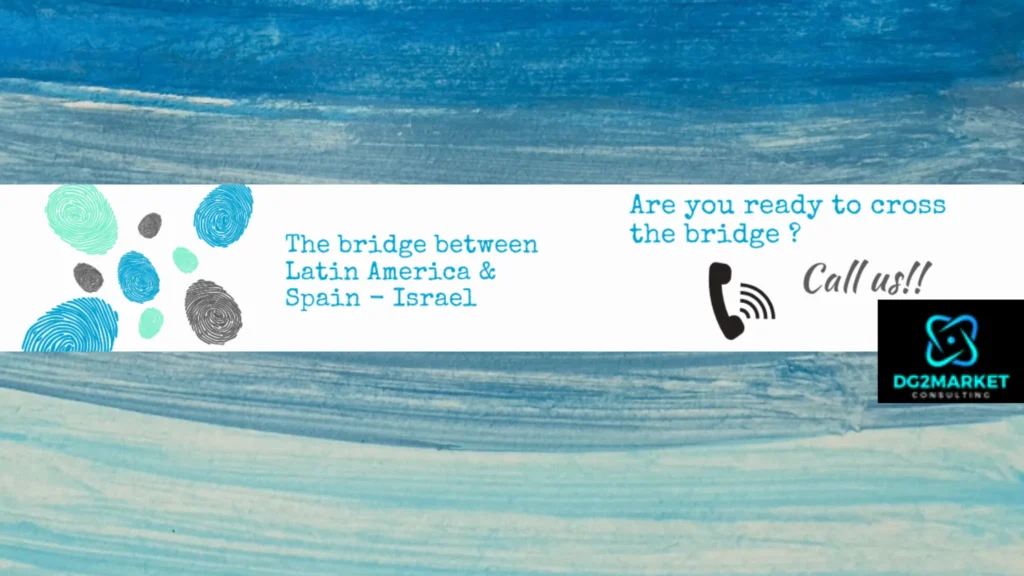International Politics: Gain insight into the dynamic interactions between Israel and Latin American countries. This deep dive covers diplomatic efforts, economic cooperation, and humanitarian aid. Understand the shared interests and diverse contributions that characterize this significant geopolitical relationship.
Based on the information available, Israel maintains diplomatic missions in several countries in Latin America. These missions are typically embassies, the highest-ranking diplomatic representations in a foreign country. Here is a list of countries in Latin America with Israeli embassies.
Israel’s Role in Latin American Countries (1950-1980)
Israel’s relationship with Latin American countries (international politics) from 1950 to 1980 was multifaceted, evolving from initial strong diplomatic support to a more complex dynamic influenced by the Cold War, regional political shifts, and the Arab-Israeli conflict.
Early Diplomatic Support (1950s-1960s)
In the early years following Israel’s establishment in 1948, many Latin American nations, particularly democratic and liberal regimes, displayed significant support for the nascent Jewish state.
This was evident in their voting patterns at the United Nations, where a majority favored the 1947 Partition Plan and Israel’s admission to the UN in 1949. Countries like Guatemala were among the first to recognize Israel, and by the early 1950s, most Latin American nations had established diplomatic ties.
Flourishing Relations and Cooperation
The 1960s marked a period of flourishing relations, primarily driven by Israel’s successful agricultural aid programs and technical assistance initiatives in cooperative organization, medicine, and rural development. Thousands of Latin American trainees participated in study programs in Israel, fostering goodwill and strengthening bilateral ties.
This period witnessed a significant increase in Latin American embassies established in Israel, with a notable concentration in Jerusalem. At the same time, Israel reciprocated with a growing diplomatic presence across the continent.
International forums also reflected this alignment, where most Latin American countries consistently supported Israel’s positions.
Shifting Dynamics and Growing Tensions (1970s)
However, the 1970s witnessed a gradual deterioration of these once-cordial relations. Several factors contributed to this shift. The rise of left-wing military regimes in countries such as Peru, the Allende government in Chile, and the resurgence of Peronism in Argentina led to different ideological perspectives. The emergence of new Caribbean states with closer ties to Africa and Third World ideologies further contributed to a growing alignment with anti-Israeli policies within international organizations. The 1973 Yom Kippur War and its aftermath also significantly altered perceptions and allegiances.
Arms Sales and Controversies
Furthermore, Israel’s growing involvement in arms sales to some of the right-wing military dictatorships in Latin America during this period cast a shadow over its image. While these sales provided Israel with economic benefits and strategic alliances, they were viewed unfavorably by progressive and liberal political actors within Latin American societies who opposed these repressive regimes.
The provision of military training and equipment to forces involved in human rights abuses, as documented in countries like El Salvador and Guatemala, generated criticism and complicated diplomatic ties.
Changing Stances in International Forums
The changing dynamics were also evident in the United Nations. The 1975 UN resolution equating Zionism with racism saw support from several Latin American and Caribbean states, signaling a departure from the earlier unwavering support. By the 1980s, some influential nations, such as Mexico, and to a lesser extent Argentina, Brazil, and Peru, routinely supported anti-Israeli resolutions.
A significant symbolic setback occurred in 1980 when Israel declared Jerusalem its capital, leading to a UN Security Council resolution calling for the relocation of diplomatic missions. Consequently, all twelve Latin American embassies in Jerusalem were moved to Tel Aviv.
Trade and Economic Relations – International Politics
Despite the political shifts and controversies, trade relations between Israel and Latin America remained relatively minor. While Israeli exports to the region saw some growth, they were not a primary economic driver for either side.
The relationship’s focus, particularly in the latter part of the period, became increasingly intertwined with geopolitical considerations and, controversially, military cooperation with specific regimes.
Conclusion – International Politics
In conclusion, Israel’s role in Latin America between 1950 and 1980 underwent significant evolution. The initial strong diplomatic support rooted in shared ideals of nation-building and development gradually led to a more complex and strained relationship.
The rise of new political ideologies in Latin America, the influence of the Arab-Israeli conflict, and Israel’s involvement in arms sales to authoritarian regimes contributed to a decline in unwavering support and a greater alignment of some Latin American nations with anti-Israeli stances in the international arena.
However, diplomatic relations were maintained by the end of the decade, albeit on a more cautious and nuanced basis. (See Israeli Embassies in Latin America)
It is essential to note that diplomatic relations and the presence of embassies can evolve in response to political developments. Factors such as government changes, shifts in foreign policy, or international events can lead to embassies opening, closing, or relocation. For example, the recent change in Colombia’s relations with Israel led to the downgrading of the embassy to a consulate general.
Therefore, for the most current and detailed information, it is always best to check the official website of the Israeli Ministry of Foreign Affairs or the respective embassy’s website. These sources will provide the latest updates on the status of diplomatic missions. Check updates for Israeli Embassies in Latin America.
Israeli Embassies in Latin America - International Politics |
||||
| Country | Address | Phone | web | |
| Uruguay | Dr. Luis Bonavita 1266 11300 Montevideo |
598-2-6288733 | info@montevideo.mfa.gov.il | https://new.embassies.gov.il/uruguay/en |
| El Salvador | Edificio Centro Colon, P.º Colón 38 Avenida 0 San José |
506-22216444 | info@sanjose.mfa.gov.il | https://new.embassies.gov.il/costarica/en |
| Ecuador | Avenida La Coruna E25-58 Y San Ignacio, Altana Plaza , Piso 5, Quito - Ecuador | 593-2-3971500 | info@quito.mfa.gov.il | https://new.embassies.gov.il/ecuador/en |
| Argentina | Avenida De Mayo 701 Piso 10, Buenos Aires, Argentina 1084 | 54-11-37244500 | info@buenosaires.mfa.gov.il | https://new.embassies.gov.il/argentina/en |
| Brazil - Brazilia | S.E.S Av. Das-Nacoes Lote 38, Q 809, Brasilia CEP 70424900 | 55-11-21270500 | info@brasilia.mfa.gov.il | https://new.embassies.gov.il/brazil/en |
| Guatemala | 13 Avenida 14-07, Zona 10, Guatemala-City | 502-23635665 | consular1@guatemala.mfa.gov.il | https://new.embassies.gov.il/guatemala/en |
| Republica Dominicana | Avenida Pedro Henriquez Urena 80, La Esperilla El Vergel, Santo Domingo 10107 | 1-809-9201500 | info@santodomingo.mfa.gov.il | https://new.embassies.gov.il/dominican-republic/en |
| Honduras | Torre Agalta 4R29+7G9, Blvd. Morazán Tegucigalpa |
+504 2262-1005 | consular1@tegucigalpa.mfa.gov.il | https://new.embassies.gov.il/honduras/en |
| Mexico | Sierra Madre No. 215, Lomas De Chapultepec, 11000, Mexico D.F, Mexico City | 52-55-52011500 | press@mexico.mfa.gov.il | https://new.embassies.gov.il/mexico/en |
| Peru | Andres Reyes 437, San Isidro, Centro Empresarial Platinum Plaza 2, Piso 13, Lima, Peru | 51-1-4180500 | info@lima.mfa.gov.il | https://new.embassies.gov.il/peru/en |
| Panama | Edificio P.H Torre Del Banco General, Piso 17, Panama City, Panama | 507-2084700 | info@panama.mfa.gov.il | https://new.embassies.gov.il/panama/en |
| Chile | Alonso de Córdova 5320 7560809 Las Condes Región Metropolitana |
56-22-7500500 | info@santiago.mfa.gov.il | https://new.embassies.gov.il/chile/en |
| Colombia | Ac. 26 #57-83 Bogotá, Colombia |
57-1-3277500 | info@bogota.mfa.gov.il | https://new.embassies.gov.il/colombia/en |
| Costa Rica | Edificio Centro Colon, Paseo Colon, Calle 38, San Jose | 506-22216444 | info@sanjose.mfa.gov.il | https://new.embassies.gov.il/costarica/en |
| Santo Domingo | Av. José Núñez de Cáceres 11 Santo Domingo 10114 |
00-1-809-9201500 | info@santodomingo.mfa.gov.il | https://new.embassies.gov.il/dominican-republic/en |
| Antigua – Barbuda (See Santa Domingo) | ||||
| Bahamas (See Mexico) | ||||
| Bolivia (see Peru) | ||||
| Paraguay (See Argentina) | ||||
Important Information for Travelers to Israel: ETA-IL Requirement
Last updated on: 07/04/2025
Please be informed that, according to the information received by the Population and
Immigration Authority (PIBA), as of the 1st of January 2025, nationals of visa-exempt countries
must have an ETA-IL approval before their flight to Israel.
Important Information for Travelers to Israel: ETA-IL Requirement
The Population and Immigration Authority (PIBA) announces that, starting January 1, 2025, nationals of visa-exempt countries are required to have an approved ETA-IL (Electronic Travel Authorization) prior to departure for Israel.
International Politics – Countries Facts
| Country | Population (2025 est.) | Predominant Religion | Main Export Commodity |
|---|---|---|---|
| Argentina | 47,067,441 | Christianity (78.2%), predominantly Catholic (62.9%) | Soybeans |
| Bolivia | 12,224,110 | Christianity (95.3%), predominantly Catholic (73.7%) | Natural Gas |
| Brazil | 212,812,405 | Christianity (86.8%), predominantly Catholic (64.6%) | Soybeans |
| Chile | 19,458,310 | Christianity (76.0%), predominantly Catholic (60.0%) | Copper |
| Colombia | 53,425,635 | Christianity (93.9%), predominantly Catholic (80.3%) | Crude Petroleum |
| Costa Rica | 5,212,000 | Christianity (84.3%), predominantly Catholic (70.5%) | Medical Instruments |
| Cuba | 11,113,215 | Christianity (59.2%), predominantly Catholic (60.0%) | Rolled Tobacco |
| Dominican Republic | 11,532,151 | Christianity (74.6%), predominantly Catholic (52.5%) | Gold |
| Ecuador | 18,000,000 | Christianity (95.6%), predominantly Catholic (87.8%) | Crude Petroleum |
| El Salvador | 6,500,000 | Christianity (75.5%), predominantly Catholic (45.8%) | Clothing |
| Guatemala | 18,000,000 | Christianity (79.3%), predominantly Catholic (47.6%) | Bananas |
| Honduras | 10,000,000 | Christianity (83.0%), predominantly Catholic (47.9%) | Clothing |
| Mexico | 131,946,900 | Christianity (92.2%), predominantly Catholic (82.7%) | Cars |
| Nicaragua | 7,000,000 | Christianity (81.1%), predominantly Catholic (54.3%) | Gold |
| Panama | 4,500,000 | Christianity (90.0%), predominantly Catholic (75.0%) | Bananas |
| Paraguay | 7,500,000 | Christianity (96.8%), predominantly Catholic (90.4%) | Electricity |
| Peru | 33,000,000 | Christianity (96.7%), predominantly Catholic (81.3%) | Copper |
| Uruguay | 3,500,000 | Christianity (58.2%), predominantly Catholic (47.1%) | Beef |
| Venezuela | 30,518,260 | Christianity (92.6%), predominantly Catholic (80.5%) | Crude Petroleum |





It’s important to remember that the information can change. Always best to check the official embassy website for the most up-to-date details on locations, contact info, and visa requirements
Thanks for sharing this important resource! It’s always good to have quick access to embassy information and stay updated on any changes, especially when planning travel or assisting loved ones abroad. 👍